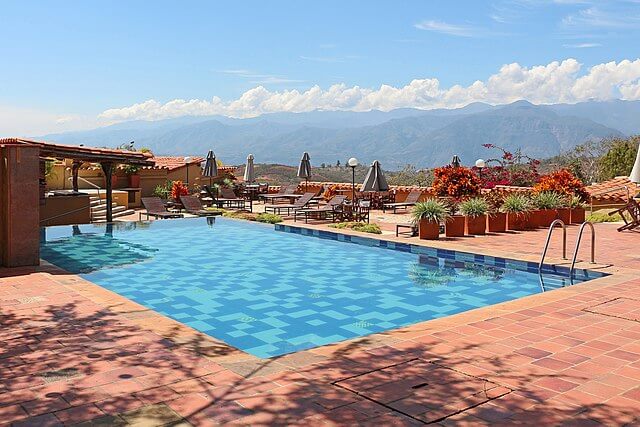
An analysis has revealed that the excessive water consumption of the wealthy, including their swimming pools, well-watered gardens, and clean cars, is contributing significantly to water crises in cities, on par with the impact of the climate emergency and population growth.
The researchers argued that the significant disparity in water usage between the rich and the poor has been largely overlooked in attempts to address water shortages. Rather than focusing solely on increasing water supply and raising prices, the study emphasized the importance of redistributing water resources more equitably to safeguard water supplies.
The study utilised Cape Town, South Africa as a case study and discovered that the wealthiest individuals consumed 50 times more water than the poorest residents. During the Day Zero water crisis in 2018, when the city experienced severe drought after several years of water scarcity, the poorest residents were left without sufficient water for their basic needs. The researchers highlighted that Cape Town’s situation was not unique and that many cities worldwide face similar challenges. Since 2000, over 80 major cities, including Miami, Melbourne, London, Barcelona, São Paulo, Beijing, Bengaluru, and Harare, have grappled with extreme drought and water shortages.
The researchers predicted that urban water crises would become increasingly frequent, with over 1 billion city dwellers expected to face water shortages in the near future. A report by the Global Commission on the Economics of Water in March warned of an imminent water crisis, with demand projected to surpass supply by 40% by 2030.
Published in the journal Nature Sustainability, the study utilised data to create a model of water usage in cities that accounted for different income levels. In Cape Town, the richest group, constituting 14% of the population, consumed 51% of the city’s water, while the poorest group, comprising 62% of the population, used only 27% of the water. Most of the water consumed by the wealthy was for non-essential purposes.
The model developed in this study can be applied to other cities and demonstrated that changes in water consumption by the richest group had a greater impact on overall water availability compared to changes in population or droughts resulting from the climate crisis. The researchers also noted that during periods of scarcity, the wealthiest individuals depleted groundwater resources by increasingly relying on private boreholes.
The scientists emphasised that failing to address social inequality in water crises often leads to technocratic solutions that perpetuate the unequal and unsustainable patterns of water use that contributed to the crisis in the first place.
——————————————————————————
At Natural World Fund, we are passionate about stopping the decline in our wildlife.
The declines in our wildlife is shocking and frightening. Without much more support, many of the animals we know and love will continue in their declines towards extinction.
When you help to restore a patch of degraded land through rewilding to forests, meadows, or wetlands, you have a massive impact on the biodiversity at a local level. You give animals a home and food that they otherwise would not have had, and it has a positive snowball effect for the food chain.
We are convinced that this is much better for the UK than growing lots of fast-growing coniferous trees, solely to remove carbon, that don’t actually help our animals to thrive.
This is why we stand for restoring nature in the UK through responsible rewilding. For us, it is the right thing to do. Let’s do what’s right for nature!
Support our work today at https://naturalworldfund.com/ and join in the solution!

